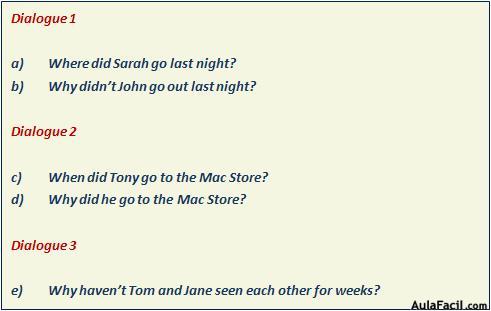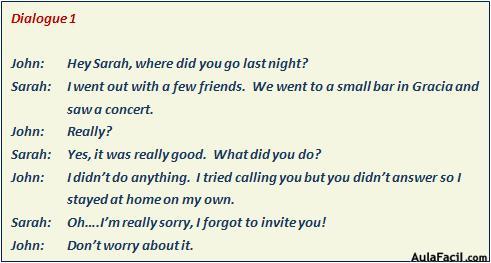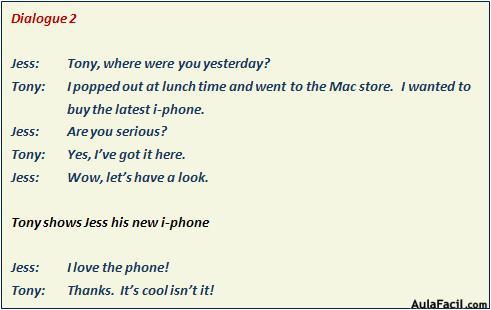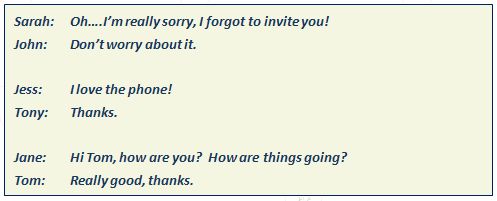Socialising
1.- Introduction to lesson
In English, there are certain phrases that go naturally together. These can be seen in the following examples of an offer - acceptance and a question – answer situation.
Sarah: Would you like an ice cream?
Tom: Yes, please.
John: Hey!
Louise: Hi!
These common phrases are called adjacency pairs and they show examples of turn-taking. In this lesson, we are going to look at a few of these common pairs.
2.- Your turn…
Here are three nouns: "greeting", "apology" and "compliment":
- Can you explain what they mean?
- Can you convert the nouns into verbs?
Response to question: Here are some phrases that will help you answer the questions above.
- A greeting is when ……
- An apology is when ……..
- A compliment is when …….
3.- Teacher talk time
You are going to listen to your teacher answer the questions below. Listen carefully, because once she has finished, it’s your turn!
4.- Your turn…
When was the last time you…
- greeted someone?
- apologised to someone?
- gave someone a compliment?
Response to questions:
- The last time I greeted someone was…..
- The last time I apologised to someone was…..
- The last time I gave someone a compliment was….
5.- Listening
I would like to introduce you to six people:
 |  |  |
Sarah and John | Jess and Tony | Jane and Tom |
5.1.- You are going to listen to 3 different dialogues. Identify which dialogue expresses a greeting, an apology and a compliment.
Sonido
Sonido
Sonido
| 1) | ||
| 2) | ||
| 3) | ||
Corregir
Ver Solución
Limpiar | ||
5.2.- Play each dialogue separately and answer the following question.
(Para ver la solución hacer doble click en texto; un click vuelve a posición original)

5.3.- Underline the expressions in the following tapescript that indicate that the dialogue is an apology, compliment or greeting.
Underline the person’s response to the apology, compliment or greeting.
Tapescript



6.- Pronunciation practice
Now you have identified the pairs of sentences. Let’s practice the pronunciation of each pair.
Listen and repeat.
Sarah: Oh….I’m really sorry, I forgot to invite you!
John: Don’t worry about it.
Jess: I love the phone!
Tony: Thanks.
Jane: Hi Tom, how are you? How are things going?
Tom: Really good, thanks.
6.1.-. Listen again. This time mark the primary stress in each sentence
For example:
- Sarah: Oh….I’m really sorry, I forgot to invite you!
(Para ver la solución hacer doble click en texto; un click vuelve a posición original)

6.2.- Now you have seen where the primary stress falls in each sentence. Which words are expressed?
a) Important words / new information
b) Unimportant words / old information
| 1) | ||
Corregir
Ver Solución
Limpiar | ||
7.- Your turn…
Listen and respond.
7.1.- Your partner will begin. Follow your role card (below) and using the expressions previously introduced in this lesson, respond accordingly.
Your partner will greet you. Respond to the greeting.
Your partner will apologise to you because he/she forgot your birthday. Accept the apology.
Give your partner a compliment about an item of clothing he/she is wearing.
Sonido
7.2.- Now it is your time to start.
Greet your partner
You forgot your partner’s birthday. Apologise to him/her.
Your partner is going to give you a compliment. Accept the compliment.
Sonido

